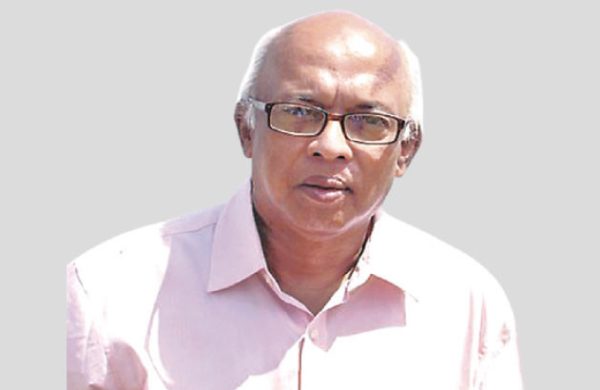The Rise and Fall of the Powerful
- Update Time : Monday, September 15, 2025

—Syed Badrul Ahsan—
Politics is sometimes risky business. It raises individuals to heights they deserve to be on or scale through sheer good fortune. And then comes that sad moment when those who enjoy power find themselves out on the street, sacked by men or women who appointed them in the first place and yet soon came to regret their decisions.
On Wednesday of last week, British Prime Minister Keir Starmer staunchly defended Peter Mandelson, a.k.a. Lord Mandelson, the UK ambassador to Washington, in the face of reports that Mandelson had enjoyed a close relationship with the late paedophile Jeffrey Epstein. By Thursday morning, in light of additional information related to Mandelson’s links with Epstein, the ambassador was dismissed with immediate effect.
One now could raise the question: did Mandelson, having been a key political player in the Labour administrations of Tony Blair and Gordon Brown, and quite controversial in his performance too, have to accept the diplomatic role handed to him by the Starmer government? There is certainly a point where individuals who have once enjoyed power ought to realise that they need to either walk away into the sunset or go silent and watch the world go by. They should let a new generation take over.
In his earlier role as a cabinet minister, Mandelson resigned when questions of integrity were raised around him. But this time round it is abject humiliation for him. Appointed ambassador in December last year, Mandelson is coming back home after only ten months in the job.
The blow dealt to Mandelson ought to be a warning for men in whom ambitions run high. Men and women who wish to serve their countries in various political or diplomatic positions should be making sure that their record is clean, that nothing of the ugly in their record should be there that will mar their chances of climbing the stairs to service for their communities or nations.
And yet there is the other side of the truth, which is that ambitious men, with no baggage to undermine their future, sometimes make it hard for themselves to survive in the world of politics owing to their indiscretion or misplaced feeling that they can change public perceptions about the state of politics in their countries despite being part of administrations headed by their powerful benefactors.
Zulfikar Ali Bhutto, Foreign Minister in Pakistan’s Ayub Khan regime, began peddling the notion that a secret clause in the Tashkent Declaration reached by the leaders of India and Pakistan in January 1966 undermined Pakistan’s interests. His mistake was that even as he groused about the alleged secret clause, he did not resign from the government. It was not until President Ayub Khan demanded that he submit his resignation or face dismissal that Bhutto left office. Ayub and Bhutto never met after July 1966.
Some sackings are an absolute necessity. When in 1968 Enoch Powell spoke of ‘rivers of blood’ flowing in Britain, it was an incitement to racism. Conservative Party leader Edward Heath took quick action through dismissing Powell from the front ranking leadership structure of the party. Powell’s future simply disappeared in humiliation. He was never able to make a comeback to power politics. Heath’s action was decisive. Had he ignored Powell’s abrasive comments, the Tories might not have won the general election of 1970.
In recent times one has repeatedly been witness to the queer manner of the sackings resorted to by Donald Trump. In his first term as President of the United States, influential men like Mike Pompeo and John Bolton were dismissed by him through announcements on his Twitter, now X, handle. Those sackings were not so much a reflection on the men dismissed by Trump as it was a commentary on the rather unusual nature in which Trump conducted the business of government.
Sometimes when powerful men dismiss individuals from key positions from fear that those individuals will in the end make matters difficult for them, they simply make certain that their decisions are fraught with political risks for the country. President Richard Nixon dismissed Archibald Cox, the independent prosecutor responsible for investigating the Watergate scandal, in October 1973. The dismissal led to the resignation in protest of Attorney General Elliot Richardson. Nixon’s sacking of Cox set in motion a process that in the end would force the President himself to resign less than a year later.
In Bangladesh, Bangabandhu Sheikh Mujibur Rahman dismissed Mizanur Rahman Chowdhury, the senior Awami League politician then serving as Minister of Information, in 1973. Rumours and gossip abounded about the reasons for Chowdhury’s dismissal, but the truth, absolute and verified, has never come to public attention. In October 1974, Bangabandhu did not sack Finance Minister Tajuddin Ahmad but directed him to affix his signature to a letter of resignation sent to him from the Prime Minister’s Office. Tajuddin wasted not a minute in tendering his resignation and going home. To this day, questions have persisted about Bangabandhu’s move, especially given the fact that it quickened the pace of the vast conspiracy already underway against him.
An infamous man in Pakistan’s history is Ghulam Mohammad, who took over as the country’s Governor General when his predecessor Khwaja Nazimuddin ascended to the office of Prime Minister following the assassination of Liaquat Ali Khan in 1951. Nazimuddin was dismissed by Ghulam Mohammad in 1953 and was succeeded by Mohammad Ali Bogra, at the time serving as Pakistan’s ambassador in Washington. Not long after, Bogra himself was dismissed by the Governor General and went back to being envoy to the US again. In 1988, a few months before he died in a plane crash, General Ziaul Haq dismissed Prime Minister Mohammad Khan Junejo when the latter began asserting his authority.
Sackings in a democracy are a fairly common phenomenon, albeit disturbing at times. In an authoritarian environment, they are not unexpected. Consider the times when Deng Xiao-ping was dismissed from all government and party positions in China before making it back as the country’s paramount leader following the demise of Mao Zedong. In the Soviet Union, Vyacheslav Molotov, close to Joseph Stalin, was removed from the office of Foreign Minister in 1956 by Stalin’s successors. Mikhail Gorbachev did not sack Foreign Minister Andrei Gromyko but gently moved him up to an essentially powerless presidency in the 1980s.
Peter Mandelson’s dismissal as British ambassador to the United States puts an end to a career which ought to have recovered from the wounds, self-inflicted, on his career in the New Labour era of Blair and Brown. It is a warning for all politicians: careers are built on integrity.
——————————————————–
Syed Badrul Ahsan writes on politics, diplomacy and history



















